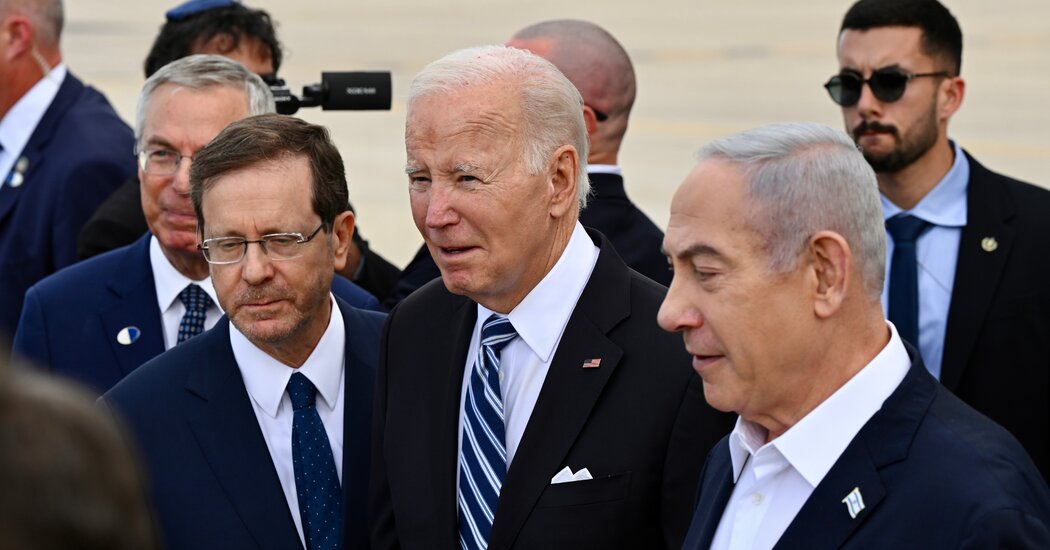The resolve of [Biden’s] dramatic presidential trip to Israel has given way to frustrating phone calls, sharp public comments and exhausting marathon meetings. The relationship has grown increasingly fraught as Mr. Biden has involved himself more intensely in the conflict than almost any other issue in three years in office. The president and his team have intervened time and again to steer Israel away from what they consider the excesses of its retaliation only to have the Israelis defy them at critical moments.
Mr. Biden has seen growing internal resistance to his backing of Israel, including multiple dissent cables from State Department diplomats. In November, more than 500 political appointees and staff members representing some 40 government agencies sent a letter to Mr. Biden protesting his support of Israel’s war in Gaza. Congressional Democrats have been pressing him to curb Israel’s assault, and the United States has found itself at odds with other countries at the United Nations.
The friction appears to be coming to a head as the new year arrives. The Biden team recognizes that its challenge is not just Prime Minister Benjamin Netanyahu, since Israelis across the board support the military operation that according to the Gaza Health Ministry has killed more than 20,000 people. But there is no serious discussion inside the administration of a meaningful change in policy, like cutting off the arms supply to Israel. Instead, Mr. Biden remains determined to navigate the crisis within the crisis by using the credibility he earned through steadfast support of Israel to shape its next chapter, although it is unclear how much leverage that gives him.
. . .
This account of the relationship between the United States and Israel over the past 12 weeks is based on multiple interviews and trips to the region with key American and Israeli officials, who spoke on the condition of anonymity to share details of internal conversations and deliberations. It is a complicated story where officials on both sides say public assumptions do not always match the private reality.



I completely agree that Biden has been tone deaf when speaking about Palestinians, Arab Americans, and Muslim Americans.
In that paragraph? They say that this conflict is incredibly divisive and then re-purpose a direct quote (‘he had to go…’ in italics) to say that Biden’s painted himself into a corner. I can’t see how that can read as fawning praise. The entire article presents a mixed record. Their efforts to prevent a broader war have been successful, their efforts to reign in Israel have mostly failed (in part because Netanyahu keeps ratfucking them), and they don’t seem to have a backup plan to pivot to unless occasional criticism can be called a plan. And it can’t be called that because they reported that it was all unplanned outpouring of frustration with the Israeli government. I don’t think Israel, Natanyahu especially, comes out looking good either.
So much of this article is about how furious Democrats are about their stance on the war and how frustrated the administration is about how little they’ve accomplished. Even the supporters they interview are far off from fawning praise. Chris Coons’ “he’s had some impact” is not exactly a ringing endorsement and he’s someone to expect praise from.